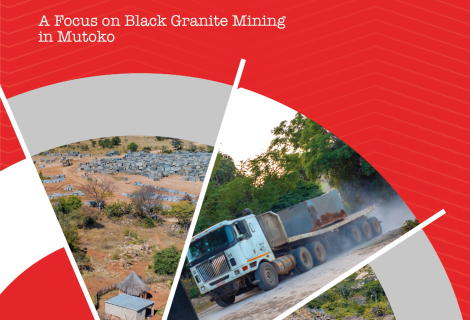
REPORT ON THE STATE OF BUSINESS AND HUMAN RIGHTS IN THE MINING SECTOR IN ZIMBABWE 2021
A focus on black granite mining in Mutoko
Zimbabwe’s mining sector has long been characterised by deep-seated flaws and challenges that have an adverse impact on human rights. The extraction of minerals such as gold, diamonds, coal and precious stones has wreaked havoc to the human rights of host communities, impacting on their long-term economic sustainability, environmental, socio-economic and cultural rights. For Mashonaland East, several mining companies are extracting natural stones in form of black granite and quarry stones and the form and manner of extraction has led to several issues linked with human rights such as forced evictions, forcible grabbing of land and uncompensated relocations, degraded environment and labour rights violations, among other violations.
This research unravelled the socio-economic and political context of granite mining, and illustrated the interrelationships and networks between the key state and non-state institutions in the sector. The patterns of human rights violations common in granite mining include violation of land rights, environmental degradation, forcible relocations and evictions, failure to comply with health and safety standards for employees, exposure of communities and workers to pollution, and pollution of the living environment (including pollution of air, soil, water and noise pollution). State institutions continue to execute their regulatory mandate, but appear to be hamstrung by the national policy call to facilitate and embrace investment, and not repel investors.